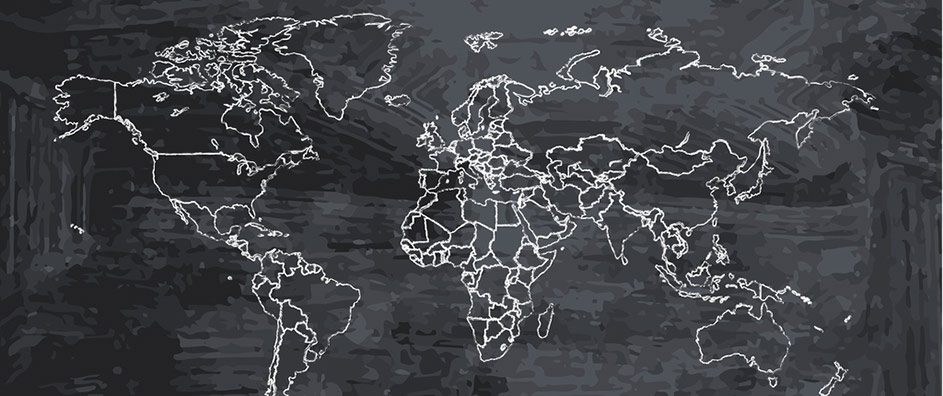In an increasingly globalized world, the dialogue between Eastern and Western cultures has become both complex and critical. This discourse is not merely academic but fundamentally intersects with the practice of spirituality and social unity, particularly as articulated in the Bahá’í teachings. Central to these teachings is the idea that the virtues of each culture can contribute to a holistic understanding of humanity. This article endeavors to dissect the intricacies involved in the East-West cultural assessment, particularly in light of Bahá’í principles.
Cultural Contextualization
The concept of culture encompasses a wide array of human activities, values, traditions, and social behaviors. Each cultural paradigm not only reflects the historical and geographical nuances of its people but also informs their worldview. In Bahá’í thought, such cultural manifestations should be regarded as expressions of the same fundamental truth. While Eastern cultures often emphasize collectivism, spirituality, and harmony with nature, Western cultures tend toward individualism, rationalism, and technological advancement. Acknowledging these distinctions is the first step towards appreciating their equivalence and worth.
The Value of Eastern Philosophies
Eastern cultures are often rooted in philosophies that emphasize interconnectedness and spiritual awakening. For instance, concepts derived from Confucianism and Buddhism advocate harmony, moral rectitude, and compassion. These values promote societal cohesion and a profound respect for nature. In the Bahá’í context, such principles resonate with the teachings on the importance of unity, as they embody a recognition of the oneness of humanity and the interconnectedness of all life. The Bahá’í writings frequently refer to these notions of compassion and respect as virtues essential for global prosperity.
Moreover, Eastern traditions often maintain a holistic approach to well-being that integrates spiritual and physical health. Practices such as meditation and yoga not only serve as tools for individual solace but also foster collective tranquility. Such practices can be seen as vital in today’s high-stress environment, echoing the Bahá’í tenet that both individual and communal spiritual development are indispensable.
The Value of Western Innovations
On the other hand, Western cultures have made significant strides in science, technology, and democratic governance. The Renaissance, Enlightenment, and Industrial Revolution mark periods wherein Western societies have thrived on reason, empirical inquiry, and innovation. These historical epochs have birthed remarkable advancements that have fundamentally altered human experience, fostering environments where individual rights and freedoms are paramount. The Bahá’í view recognizes these achievements as crucial steps toward building a just and equitable world.
Furthermore, the Western emphasis on critical thinking and intellectual rigor encourages a spirit of inquiry that is aligned with Bahá’í principles. The ability to question and analyze societal norms enables cultures to evolve. Bahá’í teachings encourage a continual process of learning, promoting an affinity for truth that transcends geographical boundaries.
Interplay Between Cultures
Rather than framing the discourse as a competition for superiority, it is more fruitful to examine the interplay between Eastern and Western cultural practices. The synthesis of ideas often leads to profound innovations and social reforms. In contemporary settings, we witness the emergence of hybrid cultural identities that borrow from both traditions. The global popularity of mindfulness, which has Eastern roots but has been popularized in Western societies, exemplifies this fruitful amalgamation.
Bahá’ís advocate for a principle of unity in diversity, wherein different cultural practices can coexist and complement one another. This principle aligns with the understanding that no one culture has a monopoly on truth or virtue. By exploring the dualities and intersections of Eastern and Western paradigms, a more enriched, nuanced perspective on culture emerges, fostering respect and cooperation.
Challenges of Cultural Superiority
The notion of cultural superiority has historically engendered conflict, prejudice, and division among peoples. This attitude fosters a climate of exclusivity and elitism that is antithetical to the Bahá’í emphasis on unity. Such a perspective breeds not only cultural arrogance but also hinders meaningful dialogue that could facilitate collective advancement. This necessitates a re-evaluation of our cultural narratives and a conscious effort to dismantle hierarchical thinking.
In today’s world, such divisiveness can lead to xenophobia and nationalism, threatening the potential for collaborative coexistence. The Bahá’í teachings implore humanity to move beyond such toxicity, urging a recognition of the intrinsic value in each culture, thereby facilitating a shared global ethos.
The Path Toward Global Civilization
In the end, the question of cultural superiority might itself be a distraction from the essential task at hand: the creation of a global civilization that honors diversity while striving for unity. The Bahá’í framework advocates for collaborative efforts that integrate the strengths of both Eastern and Western cultures. Only through such synergies can humanity hope to navigate the complexities of modern existence and foster a world that is both prosperous and peaceful.
In conclusion, the exploration of Eastern and Western cultures through the prism of Bahá’í teachings invites a reevaluation of how we perceive and engage with cultural differences. Rather than asserting superiority, it is through mutual respect, learning, and cooperation that humanity can achieve true progress. The continued dialogue between these two spheres not only enriches our understanding but also lays the groundwork for a sustainable and harmonious future.
